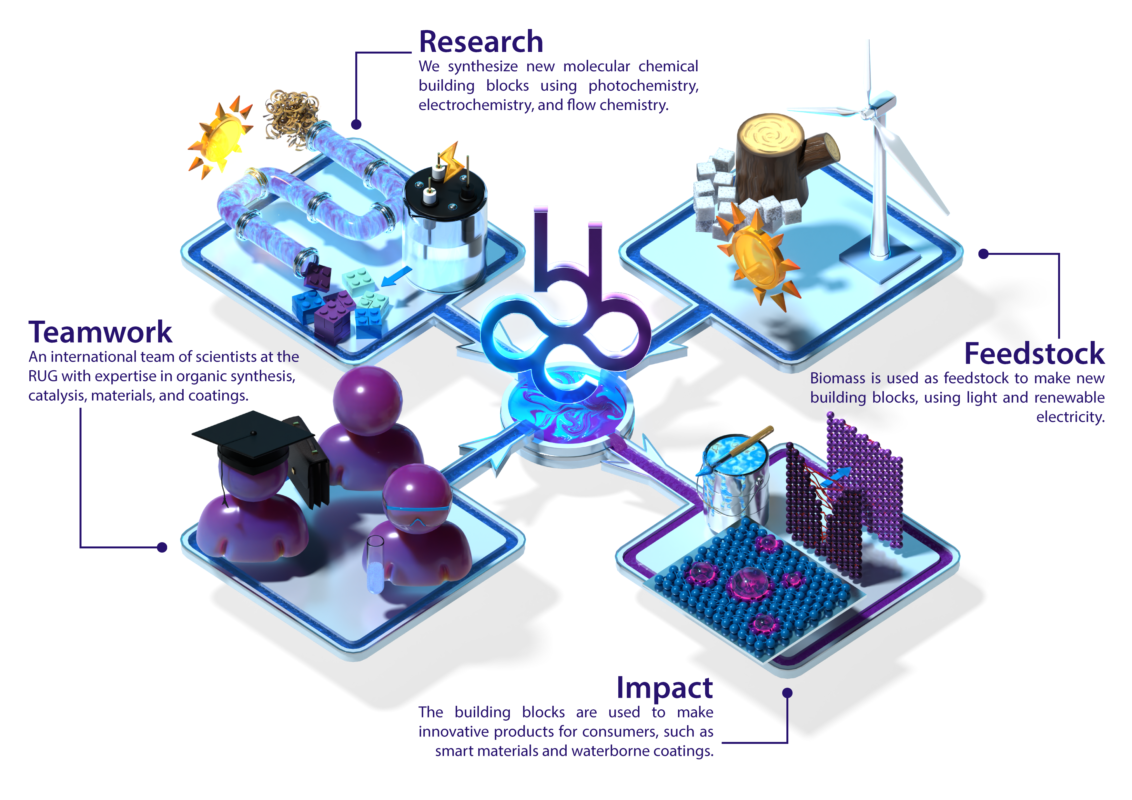The research conducted at the Groningen University hub aims at developing greener methods of chemical synthesis, using light and electrons, as alternatives to energy-intensive industrial processes, developing new sustainable materials with innovative properties. The focus of the hub is on homogeneous catalysis, organic synthesis, materials and coatings.
A word from Ben Feringa, program director at ARC CBBC Groningen hub:
"Bringing together experts from academia and industry allows us to look at the current challenges from different angles, so we can come up with original solutions"

To ensure a sustainable Future, there is a crucial need for coatings and materials made from renewable sources and which are produced at the lowest energy cost. Additionally, the materials of the future will have innovative properties that makes them more sustainable. At the Groningen University hub, ARC CBBC experts are working on new methods to assemble building blocks and create coatings with disruptive properties. Also, new alternative methods to produce chemicals are investigated using photochemistry and electrochemistry with the aim to implement these new technologies at a larger scale.
Three lines of research at the Groningen University hub are focusing on:
- Flow and photochemistry: The combination of photochemistry (the use of light to trigger chemical reactions) and continuous flowchemistry (opposed to batch reaction) is a very promising method in green chemistry. The design of new photoredox catalysts combined with upscaling research is used to developed the initial scale methodology.
- Electrochemistry: Researchers at the hub explore the direct use of electrons to create chemical bonds to gain control on important chemical reactions and lower the energy cost of important chemical transformations.
- Synthesis of new chemical building blocks: New cross-coupling reactions and polymerization methodology are developed to produce new chemical building blocks in a sustainable way.
Large equipment available at the ARC CBBC Groningen hub (see photos below):
- Analytical balance
- Automated flash column chromatography
- Electrochemical reactors
- Photoreactors
- Photoflowreactor
- Fluorimeter
- Nanodrop UV-visible spectrophotometer
- Modular UV-visible spectroscopy setup
- TLC-MS
- UPLC-MS
- Speed mixer (planetary orbital mixer)
- Fluorescence microscope
- UV-curing setup
- Polyjet 3D printer
ARC CBBC researchers are given the opportunity to use this large equipment. For information please contact Alexander Ryabchun (scientific coordinator RUG).
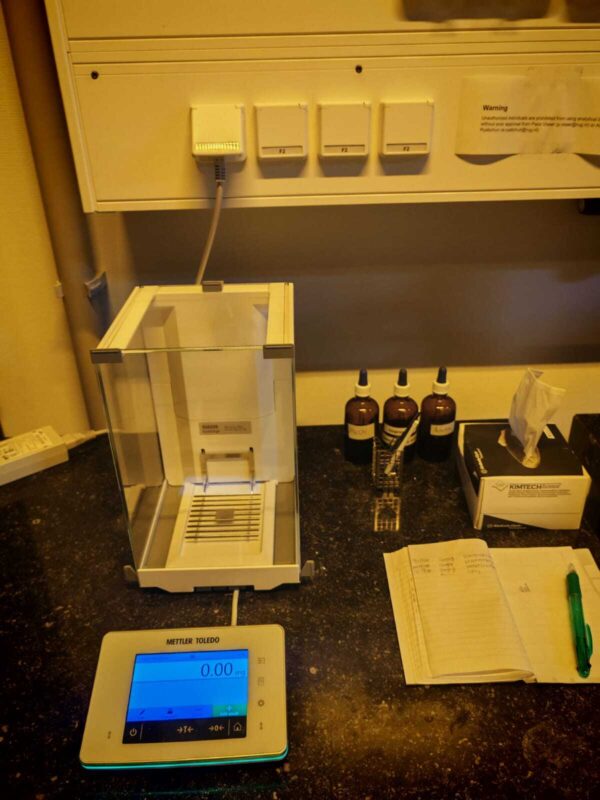
1. Analytical balance for measuring small amounts of compounds
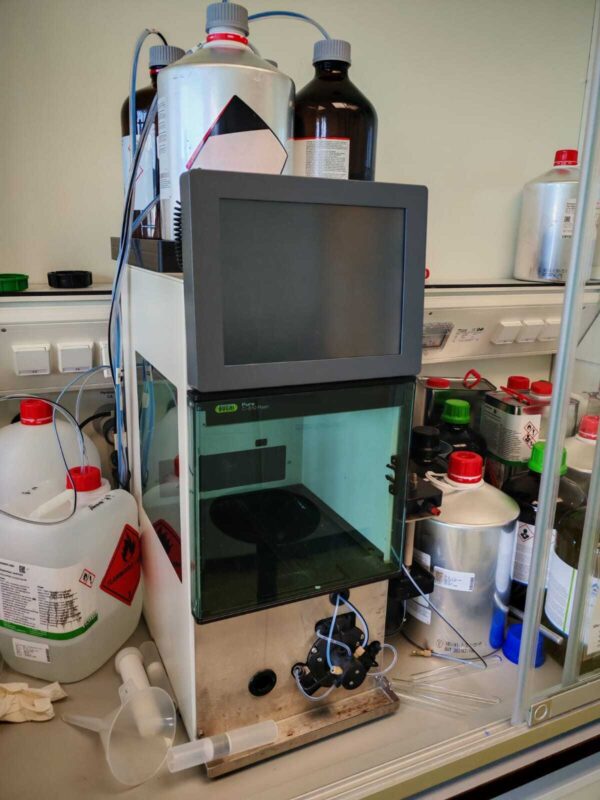
2. General purpose automated flash column chromatography setup for routine purification of organic compounds
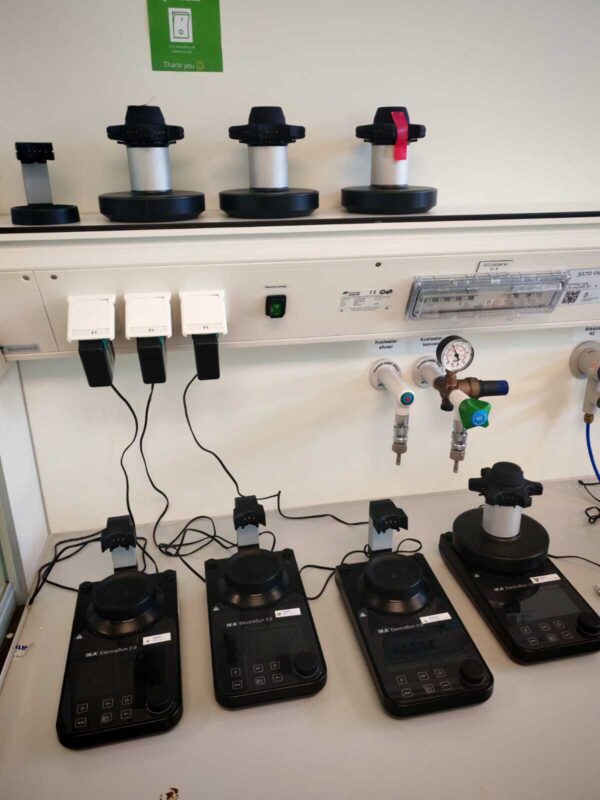
3. Electrochemical mixing plates and reactors allowing facile and modular setup for synthetic electrochemistry projects accommodating multiple reactions at the same time
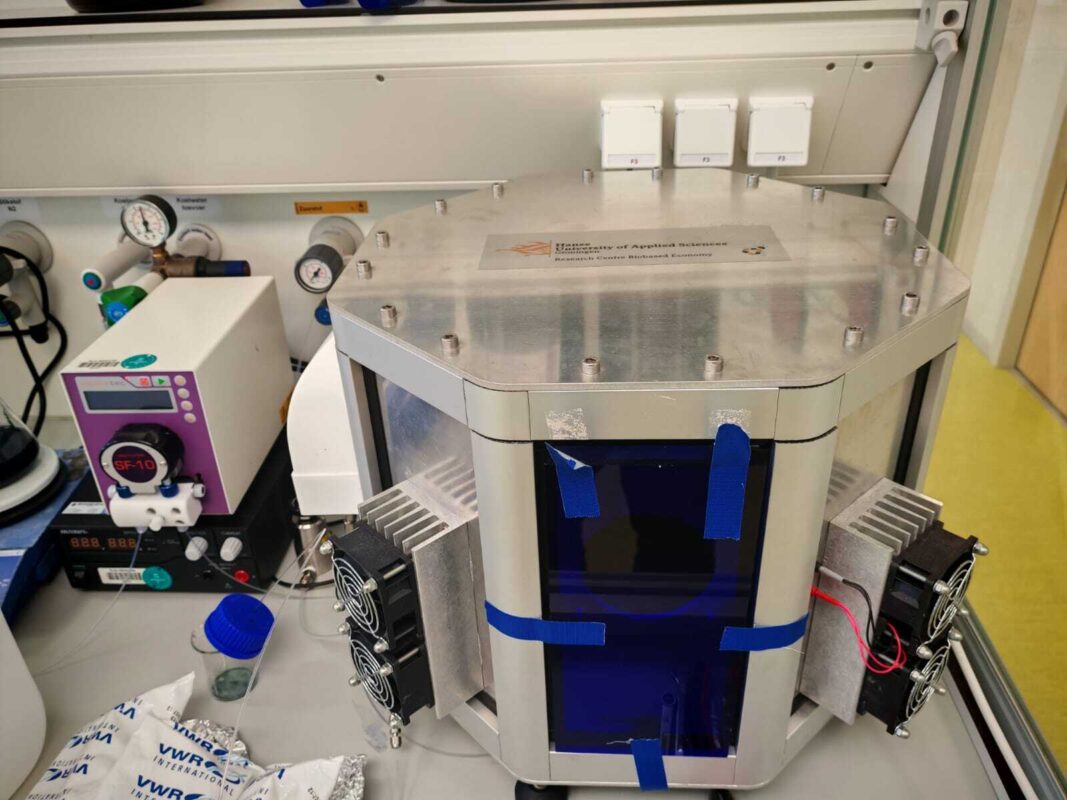
4. Custom-built photoflowreactor setup for scale up of laboratory photochemistry
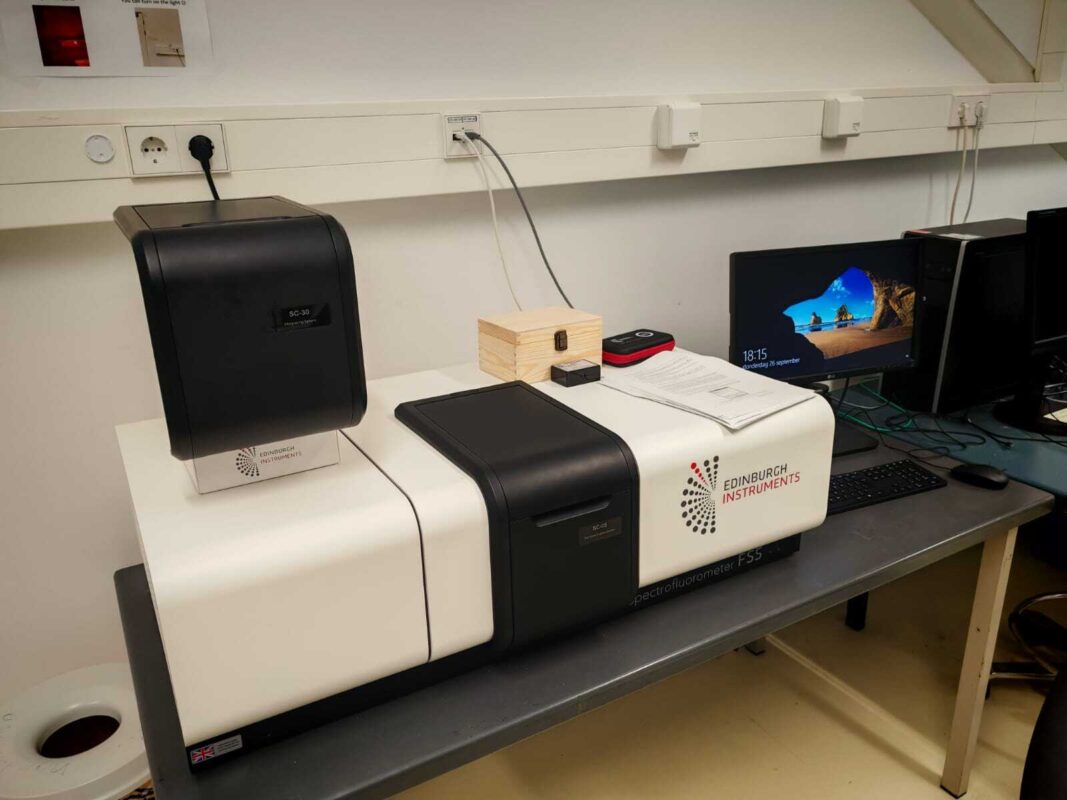
5. General purpose fluorimeter with integrating sphere
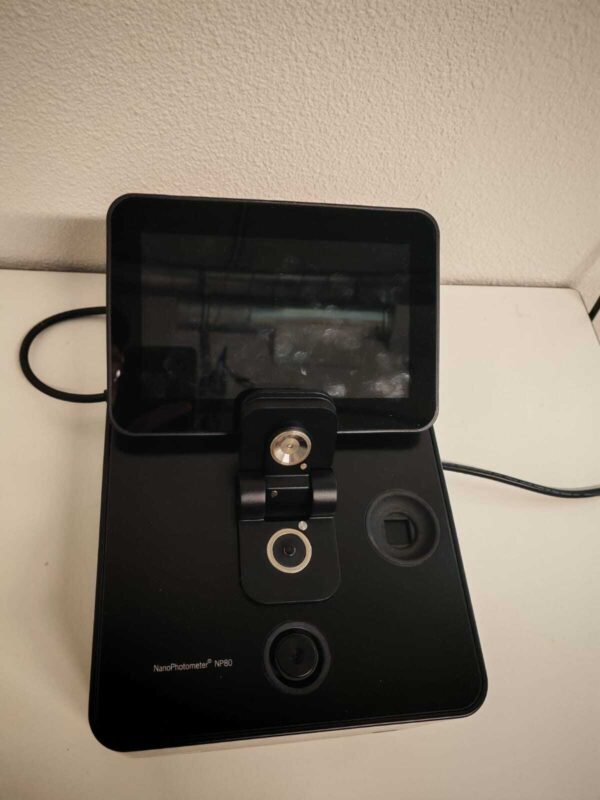
6. Multipurpose small-scale UV-visible spectrophotometer with both the capability to measure small volumes (nanodrop) and cuvettes
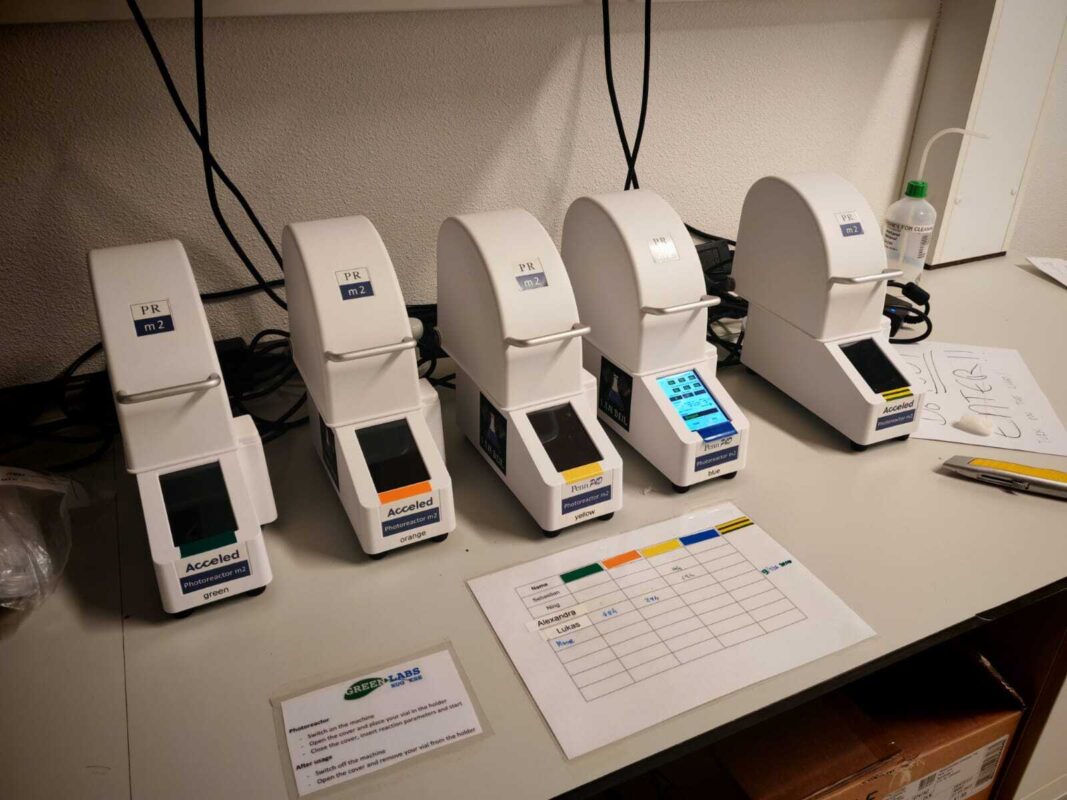
7. Programmable photoreactors for performing photochemical synthesis
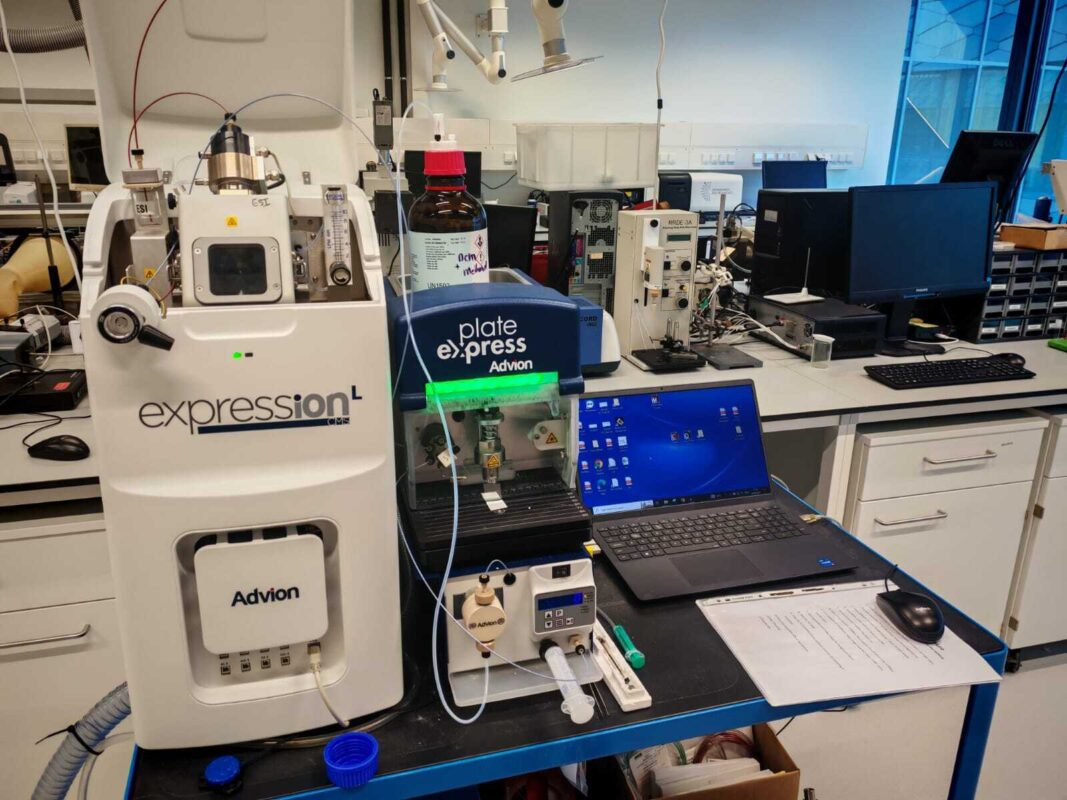
8. Setup for obtaining mass spectra from direct injection and/or from TLC plates
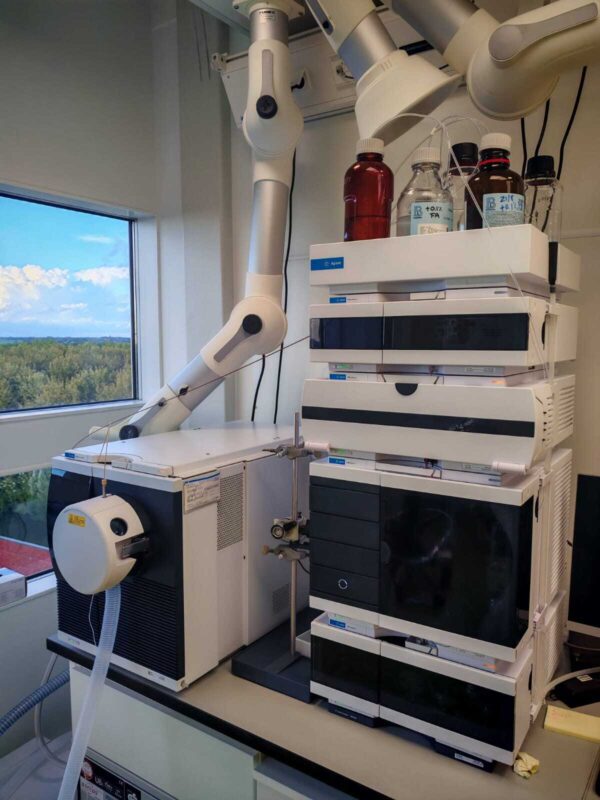
9. Ultraperformance liquid chromatography setup with mass spectrometry capabilities
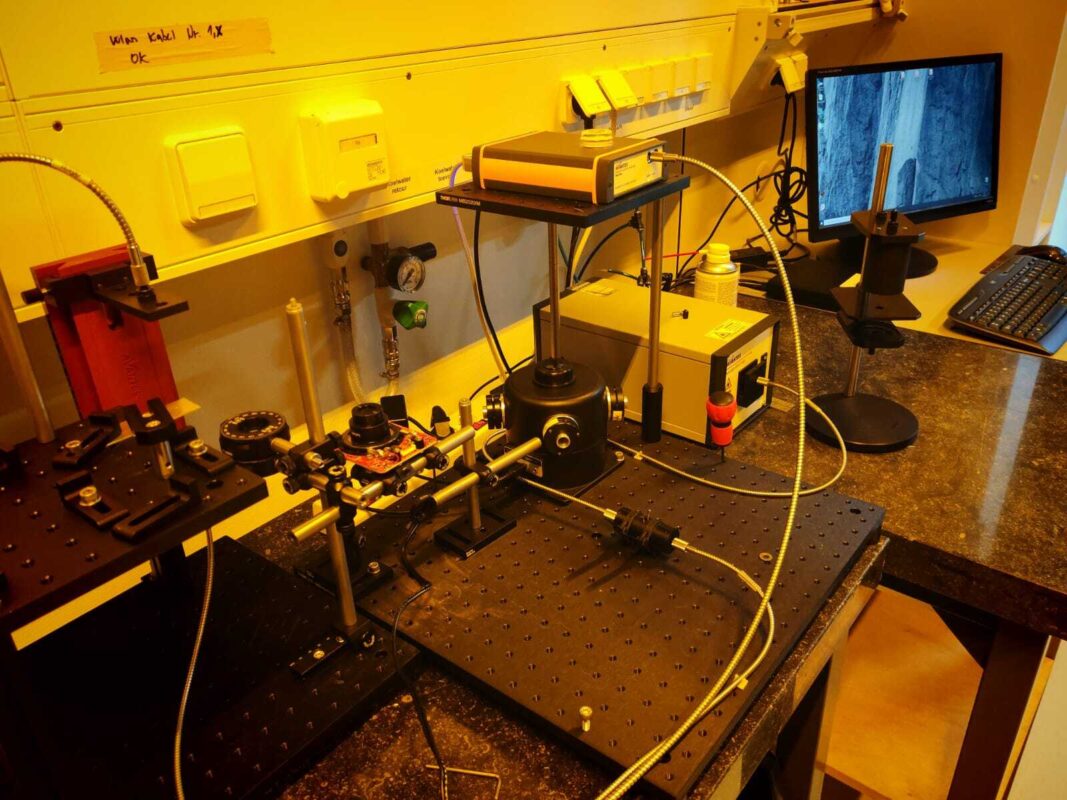
10. Multipurpose UV-visible spectroscopy setup with modular light source and spectrometer for versatile spectroscopy applications
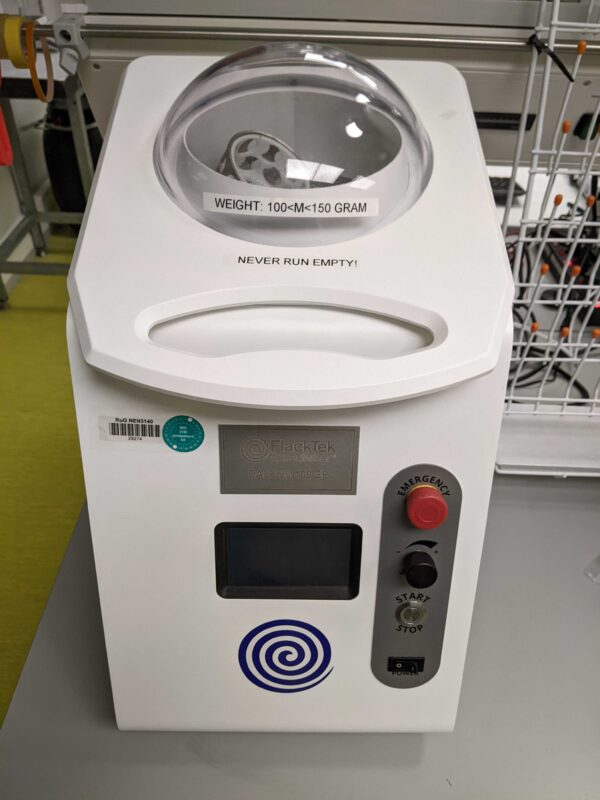
11. Planetary orbital mixer for mixing viscous monomers, polymers, and composites
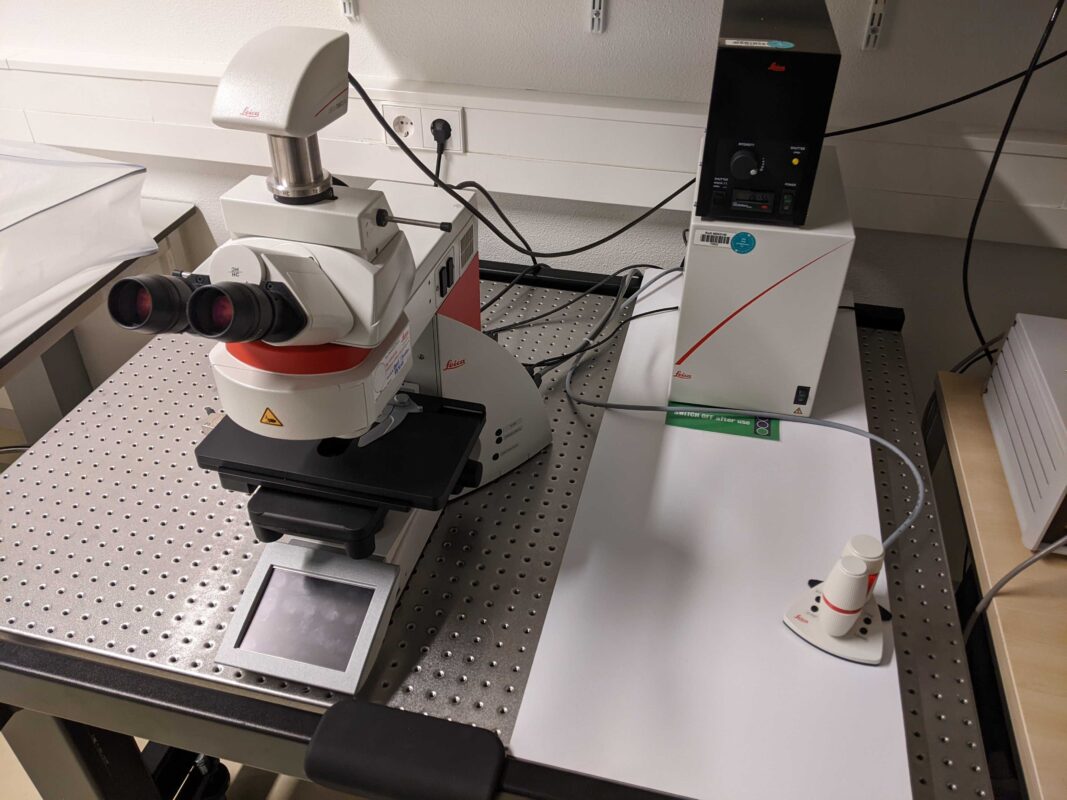
12. Multipurpose fluorescence microscope with Thunder capabilities for image deconvolution allowing higher resolution in thicker sample; used for studying coatings and smart materials
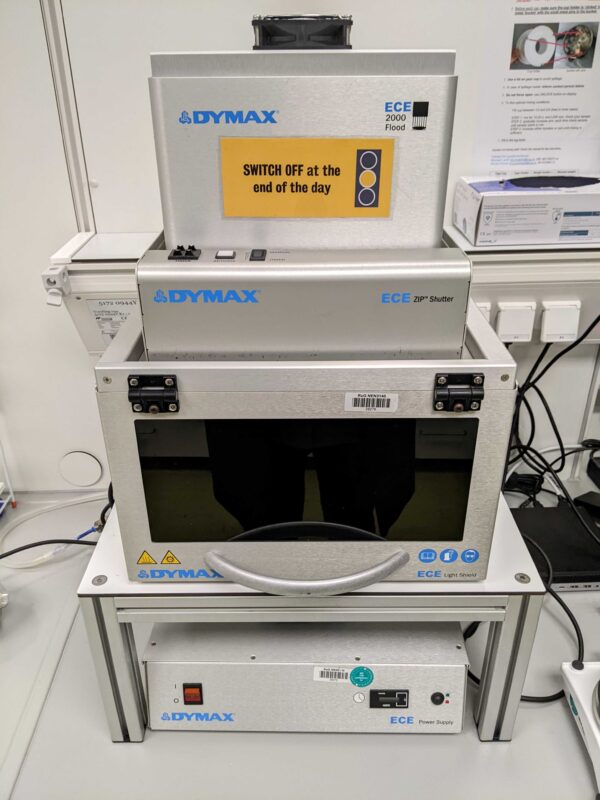
13. Multipurpose UV-curing setup for polymer applications
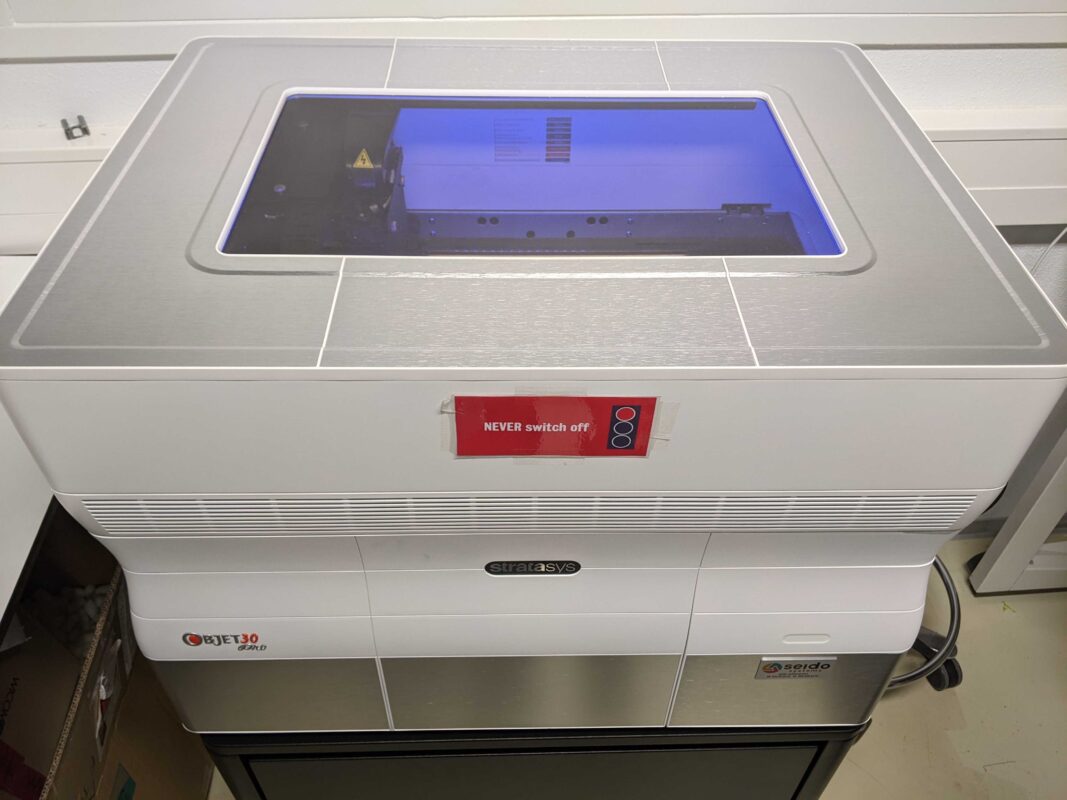
14. High resolution 3D printing based on the polyjet technology (droplet printing) for smooth surfaces and finest features; used for creating molds, 3D objects, and microfluidic devices
